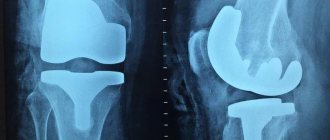In modern medicine, there is a huge number of very different branches and specializations of a narrow focus: surgery, dentistry, gynecology, etc. Separately on the list of medical specialties is the profession of obstetrician. And all because studying obstetrics requires knowledge not only of the fundamental medical sciences, but also close acquaintance with a whole range of special information that has nothing to do with medical branches.
In modern medicine, there is a huge number of very different branches and specializations of a narrow focus: surgery, dentistry, gynecology, etc. Separately in the list of medical specialties is the profession of obstetrician . And all because studying obstetrics requires knowledge not only of the fundamental medical sciences, but also close acquaintance with a whole range of special information that has nothing to do with medical branches.
In addition, if any other doctor treats a person from birth, then an obstetrician monitors the health of the expectant mother and the development of the child from the moment of conception. In other words, an obstetrician is the very first doctor that each of us meets long before we are born. He also acts as a mentor to a pregnant woman, who studies all the physiological and psychological characteristics of his ward, and delivers the child. Therefore, it is not surprising that obstetricians have special requirements, which we will talk about today.
Who is an obstetrician?
An obstetrician is a highly qualified specialist with a completed higher medical education who studies the physiological and pathological processes of the female body associated with conception and pregnancy, childbirth and postpartum activity, diseases of the fetus and newborn.
The name of the profession comes from the French accoucher (to give birth, to give birth), which directly indicates the main task of the doctor - to provide comprehensive assistance to women during childbirth. The history of obstetrics dates back to ancient times, when women who had already given birth, based on their own experience, began to help their fellow tribesmen during childbirth.
For a long time, obstetrics occupied a lower level of development than all other branches of medicine, and was considered one of the departments of surgery and gynecology. Obstetrics was identified as an independent branch of medicine only in the 19th century, although schools for training obstetricians existed as early as the 4th-5th centuries BC. In Russia, the first midwifery schools were opened only in 1754, and obstetric clinics - in 1808.
Modern obstetricians are highly qualified specialists not only in the field of obstetrics. In addition, they have extensive knowledge in related fields of medicine such as surgery, internal medicine, resuscitation and pediatrics.
Let us note that the professional responsibilities of obstetricians are not limited to monitoring the course of pregnancy and childbirth.
They monitor the condition of the woman in labor and the baby and, if necessary, prescribe primary treatment and collection of tests to determine a detailed history; if the woman in labor is indicated for surgical intervention (for example, cesarean section), the obstetrician takes part in the operation; in case of unforeseen situations, the specialist carries out resuscitation measures, also it visually diagnoses the baby's health immediately after birth.
Anesthesiologist: pain control
Each duty team must include an anesthesiologist and a nurse in the anesthesiology and resuscitation department. They come to the maternity ward if a woman wants to give birth with pain relief. First, the doctor asks the woman about her state of health, examines her, studies the results of examinations, and finds out whether she is allergic to any medications. All this is necessary in order to choose the right type of anesthesia and prevent unwanted reactions.
Then the anesthesiologist decides which type of labor anesthesia is best to use (in each case individually). The doctor is assisted by a nurse anesthetist: she draws medicine into a syringe, injects it into a vein, and measures blood pressure. After anesthetizing labor (epidural anesthesia is most often done), the anesthesiologist is constantly with the woman. He monitors how the anesthesia affects the woman in labor (whether the contractions are sufficiently anesthetized), decides when to add medicine, and when to stop the anesthesia.
What personal qualities should an obstetrician have?
The work of an obstetrician , like the work of any other medical professional, is to provide qualified medical care. Therefore, representatives of this profession must, first of all, be distinguished by their love of humanity, responsibility and confidence in their own strengths and knowledge. In addition, the specifics of the professional activity of an obstetrician require him to have such personal qualities as:
- accuracy;
- pedantry;
- tolerance;
- ability to empathize;
- stress resistance;
- patience;
- communication skills;
- goodwill;
- responsiveness;
- self-organization;
- attentiveness;
- the ability to react adequately in extreme situations;
- well-developed sensory, logical and long-term memory;
- analytical way of thinking.
As we mentioned above, the activity of an obstetrician requires extensive knowledge in a variety of areas. In particular, this specialist must know the basics of psychology, pharmacology, genetics and sexology, communication ethics and sociology, as well as understand the operation of ultrasound equipment and other equipment for diagnosis and treatment.
Professional knowledge
- Sanitary and hygienic standards, requirements.
- Medical records management.
- Technique for collecting biological material.
- Standard procedures and actions during childbirth.
- Fundamentals of sanitary educational work.
- Gynecology and obstetrics, pediatrics, pharmacy, basic psychology.
- Rules for prenatal and postnatal care for women and newborns.
- Rules for the reception and examination of patients.
- Knowledge of a foreign language and a driver’s license are not required, but desirable for midwives applying for a vacancy in a reputable medical center.
Benefits of being an obstetrician
The main advantage of the obstetrician profession , without any doubt, is the fact that thanks to this specialist, children are born. After all, the birth of a healthy child brings positive emotions not only to the parents of the newborn, but also to obstetricians. The moment when happy parents hold their baby for the first time leaves a feeling of being present at the creation of a miracle. That is why almost all obstetricians claim that they mainly work not for a salary, but “for emotions.”
Many people consider an important advantage of this profession to be an extensive store of knowledge, which can be used not only in professional activities, but also in personal life. Agree that an obstetrician can safely be called a “universal” specialist, capable of providing qualified assistance to both young children and the elderly. This means that he can act as a personal family doctor for his family.
Despite the fact that the official salary of obstetricians is not amazingly large (on average, Russian obstetricians receive about 30-35 thousand rubles monthly), good specialists do not complain about the lack of income. And all because in our country it is customary to thank obstetricians not only “in words”, but also with the help of valuable gifts (including in monetary terms).
You have a very responsible job. How important is the patient’s trust and how to gain it?
In my opinion, it does not need to be conquered. A person either trusts you or he doesn’t. The relationship between a doctor and a patient is no different from the relationship between any other people. I think first of all you should be honest and sincere. Decent and respectful. And, most importantly, to sincerely want to help your patient. Do not take a formal approach to fulfilling your duties, do not be a “cracker”. No matter how trivial it may sound, the axiom “treat another person the way you want to be treated” is a golden rule for people of all professions.
A doctor is also a person. Yes, we have a very large area of responsibility. We may be in different physical and emotional states. But every time I imagine a close person/friend/relative in the place of my patient, and I really want them to be treated with great care.
It seems that I am now talking about some kind of ideal world? In fact, there is nothing pompous or unrealistic in my words. It’s just that if we initially treat each other humanly and with due attention, problems with building relationships and building trust will not arise.
Disadvantages of being an obstetrician
Those who choose the profession of an obstetrician need to be prepared not only for positive emotions, but also for stressful situations, since today pregnancy and childbirth quite often come with complications. And according to experts, in the coming years the number of complex cases will increase, since the decisive factor here is the unfavorable environmental situation, which is only getting worse from year to year, as well as the nervous tension characteristic of modern society.
Another disadvantage of being an obstetrician is the irregular work schedule. Children do not choose the time of birth, and are not warned in advance about the exact date of their birth. Therefore, the obstetrician must be prepared for the fact that he can be called to work at any time of the day or night, regardless of whether it is a holiday or not. At the same time, the birth process itself can drag on for several hours, during which the specialist experiences nervous tension.
And most importantly, the obstetrician bears responsibility (both legal and moral) for the life and health of the mother and child. But not every person can withstand such a “heavy load”.
Neonatologist: the first children's doctor
Shortly before the baby is born, a new character appears in the maternity unit - a neonatologist (pediatrician for newborn babies). Immediately after birth, he should listen to the baby’s heart and breathing, check muscle tone, reflexes and skin color. Based on these observations, the baby is given an Apgar score (for example, 8/9). If necessary, medical procedures are immediately carried out (freeing the upper respiratory tract from mucus, restoring the normal rhythm of breathing and heartbeat).
Then the neonatologist decides which department to transfer the baby to. In old-type maternity hospitals, this is the children's department. In modern maternity hospitals there are “mother-child” departments, in which mother and child can always be together; in such maternity hospitals, the baby and the healthy mother are not separated from the first minutes.
Where can you become an obstetrician?
MADPO invites you to take obstetric professional retraining courses. The training program is based on relevant educational and professional standards
MASPC invites you to take professional retraining courses for obstetricians. We offer unique technologies for distance education of healthcare workers with an individual training schedule.
Increasing the professional competence of specialists and bringing their knowledge in line with modern requirements are the main goals of the courses.
Obtaining a profession as an obstetrician is both simple and difficult. It’s simple, because there are medical universities in almost every more or less large city in Russia, and it’s quite easy to enroll in them (naturally, subject to intensive training in specialized subjects while still studying at school). But it’s difficult, because medical universities hold the record for the duration of study - 6 years to obtain a medical education, plus 1-2 years to undergo practical experience in an internship or residency.
In other words, only after seven years of training (and this is a minimum!), and only upon receipt of the appropriate certificate, will a young specialist receive the right to conduct his own practice. But that's not all. Every five years, an obstetrician must undergo advanced training courses. Otherwise, he may lose his certificate, and therefore the right to provide medical services.
By the way, if you do not manage to enter a medical university immediately after graduation, do not rush to get upset. In order not to waste time, you can enroll in a medical college or technical school, a diploma from which, by the way, will significantly increase your chances of admission to one of the leading medical universities in Russia , such as:
- Russian State Medical University named after. N.I. Pirogova;
- St. Petersburg State Medical University named after. acad. I.P. Pavlova;
- Northwestern State Medical University named after. I.I. Mechnikova;
- First Moscow State Medical University named after. I.M. Sechenov;
- Siberian State Medical University.
Moscow State University named after M.V. Lomonosov (MSU)
Moscow
[31.05.01] Medicine
| Type | Form | Price |
| Bachelor's degree | Full-time | 400 000,00 ₽ |
Kazan (Volga Region) Federal University
Kazan
[31.05.01] Medicine
| Type | Form | Price |
| Bachelor's degree | 315 000,00 ₽ | |
| Bachelor's degree | 169 800,00 ₽ |
Peoples' Friendship University of Russia
Moscow
[31.05.01] Medicine
| Type | Form | Price |
| Bachelor's degree | Full-time | 310 000,00 ₽ |
Moscow State Medical and Dental University named after. A.I. Evdokimov of the Ministry of Health of the Russian Federation
Moscow
[31.05.01] Medicine
| Type | Form | Price |
| Bachelor's degree | Full-time | 290 000,00 ₽ |
St. Petersburg State Medical University named after. Pavlova
Saint Petersburg
[31.05.01] Medicine
| Type | Form | Price |
| Bachelor's degree | Full-time | 245 000,00 ₽ |
| Bachelor's degree | Full-time | 245 000,00 ₽ |
| Bachelor's degree | Full-time | 245 000,00 ₽ |
| Bachelor's degree | Full-time | 245 000,00 ₽ |
[31.05.02] Pediatrics
| Type | Form | Price |
| Bachelor's degree | Full-time | 230 000,00 ₽ |
| Bachelor's degree | Full-time | 230 000,00 ₽ |
Northwestern State Medical University named after I.I. Mechnikov
Saint Petersburg
[31.05.01] Medicine
| Type | Form | Price |
| Bachelor's degree | Full-time | 240 000,00 ₽ |
North-Eastern Federal University named after M.K. Ammosova
Yakutsk
[31.05.01] Medicine
| Type | Form | Price |
| Bachelor's degree | Full-time | 233 000,00 ₽ |
[31.05.02] Pediatrics
| Type | Form | Price |
| Bachelor's degree | Full-time | 233 000,00 ₽ |
St. Petersburg State Pediatric Medical University
Saint Petersburg
[31.05.01] Medicine
| Type | Form | Price |
| Bachelor's degree | Full-time | 200 000,00 ₽ |
[31.05.02] Pediatrics
| Type | Form | Price |
| Bachelor's degree | Full-time | 190 000,00 ₽ |
Far Eastern Federal University
Vladivostok
[31.05.01] Medicine
| Type | Form | Price |
| Bachelor's degree | Full-time | 195 000,00 ₽ |
Kazan State Medical University of the Ministry of Health of the Russian Federation
Kazan
[31.05.01] Medicine
| Type | Form | Price |
| Bachelor's degree | Full-time | 175 000,00 ₽ |
Gynecologist-endocrinologist
Women experience disturbances in the body due to improper activity and production of hormones, which can lead to serious diseases of the reproductive system. Such cases in medical practice are dealt with by gynecologists-endocrinologists.
The profession of a gynecologist requires a doctor to have extensive knowledge in various fields of medicine. This includes surgery, psychology, anatomy, therapy, venereology and even proctology. It is safe to say that a gynecologist is a universal doctor with knowledge in almost any field of medicine, since his work involves a comprehensive study of the female body and organism, both externally and internally.
How could she give birth on the Moscow Ring Road? We're not at the cinema!
— I would like to immediately ask about the most unusual births, but I’m sure you have a large selection of stories, and most likely there are many unusual ones, am I right?
- Yes, that's for sure. There is always something to remember. I had a patient who gave birth on the Moscow Ring Road. She was driving in a car with her husband to us, he tried to go around the traffic jam using the bump stops, but no one gave way to them. And he jumped out to argue with someone, and she felt that she was giving birth, turned on speakerphone to me, took off her jeans and gave birth. I remember saying: “I beg you, wrap it up, whatever you want, just wrap it up!”
Premature birth, 33-34th week. And she is already sitting with the child, and her husband is screaming and waving his arms. She knocks on his window, saying, come back. He opens the door, sits down, so angry, she tells him: “Let’s go, I’ve already given birth.” “How did you give birth?!”
As a result, an ambulance came for her, picked her up, and brought her here. But my husband got there in traffic jams only an hour later and rushed around the department: “Well, how could she give birth? I was taking her! Well, we’re not at the cinema!” Then they worried: “How will you record it? The child was born on the Moscow Ring Road.” I’m like, “Is it the outside or the inside?” "Internal!" "Then Moscow." "Thank you, thank you!"
— I know that in traffic jams, traffic police officers often help pregnant women...
“They are very afraid to give birth themselves, so with great inspiration and enthusiasm they bring us women who are stuck in traffic jams. Here's another story. Our patient from Ryazan felt that she was giving birth. I remember the call at three o’clock in the morning, in the ringing silence of the apartment: “Hello! - such a ringing voice. - I'm giving birth!"
And I understood from the voice that no, they don’t give birth that way. But she decided that she was still giving birth and would not make it there herself. I turned to the traffic cops: guys, take me there. And with great joy they took her from Ryazan. While driving, she realized that everything had stopped, and she sat silently, did not moan, but there was nothing to do, on the way. They brought her, handed her over to us, and for three days we waited for the birth, and the traffic cops called: “Well, how is ours? Well, why is she suffering so much? I didn't give her away.
You never know how and what will happen during childbirth. I will never forget a patient who literally fainted at the sight of any medical item. I asked: “How is the baby moving?” “Oh, no, you don’t need to discuss medical things with me!” I thought to myself: “Well, this will be childbirth.” Do you know what they were? Into the water, with a bottle of champagne and songs. She opened the bottle and sang along to an Adam Lambert song. So we gave birth, without a single gram of anesthesia. She gave birth as if she sang a song.
— The most memorable, probably not only extremely funny?
— What remains in the memory is either a fun birth or one with complications. I had a patient who had a seizure during labor. She suddenly began to convulse, I didn’t have time to breathe before my husband said: “Yes, she’s been like this for a long time!” Ever since the horse’s hoof hit her in the chest, she’s been shaking all the time.” I remembered this for the rest of my life. And the resuscitator, who looked at the patient in convulsions and crossed herself in the corner.
If we get back to the funny stuff, I had a woman who laughed all the time during labor and said into the phone: “Ha-ha-ha, I’m giving birth right now!”, “Woo-hoo-hoo, I gave birth, yeah!”, “What’s up?” so blue, ha-ha-ha?”
She didn't stop laughing at all. There are those who do not regard childbirth as a universal grief.
Not a single woman in the world will die from pain during childbirth, you will fall into a trance, gain strength, whatever, but you can definitely do everything without pain relief. From bleeding, infection - what they died from is what they continue to die from. But not from pain. Childbirth is an amazing spontaneous process that has been embedded in us since the time of Eve. It will continue until the human race ends.
Short description
Gynecology appeared in ancient times, but the peak of development of this medical field occurred in the 19th-20th centuries. Today, gynecology is separated from pediatrics, and doctors who have chosen this direction are popular and respected specialists.
Gynecologists do not sit idle for a day, because every adult woman visits a specialist 1-2 times a year for a preventive examination. These doctors diagnose, treat, and monitor the following conditions and diseases:
- determination of pregnancy;
- fibroids, cervical erosion;
- STDs, bacterial diseases;
- salpingoophoritis, endometriosis and others.
Gynecologists work in medical centers and other institutions, treating the internal and external female genital organs. Often gynecologists with experience study related specialties: ultrasound doctor, oncologist, endocrinologist, nutritionist, reproductive specialist, obstetrician. Specialists are also divided into children's specialists, who work with patients from 0+ to 18 years old, and adults.
Why obstetrics? Was this a conscious choice?
Obstetrician-gynecologist
What are you talking about! Absolute randomness. In general, I wanted to be Yuri Senkevich (anesthesiologist, host of the program “Travelers Club” - editor’s note), and to become an anesthesiologist, in the sixth year of the institute I had to choose a direction - surgery or obstetrics. I thought about it and chose the second one. First of all, surgery is very difficult, and not just physically. What a responsibility! And secondly, I was very interested in the mechanics of the birth process, how the fetus turns, for example.
And then, when the time came to take the exam to become an anesthesiologist, I accidentally broke my leg and spent six months in a cast. So I didn’t become Senkevich.
By the way, do you know how women differ from men in the context of our conversation? Pelvis. Since ancient times, the female pelvis has become narrower, and someday it will catch up with the male one. This is not only in Russia, but all over the world - evolution. And there are more and more indications for caesarean section, so fewer and fewer women are giving birth naturally. Interesting!
What problems do patients like to keep silent about, but should be talked about in order to prevent consequences?
You know, there is one piece of advice that I give to my patients and all those girls and women who subscribe to my profile: if you want your appointment with a gynecologist to be as informative as possible, be as frank with him as possible. It's not easy for everyone, but it's worth it. From my personal experience, there are two topics that patients do not like to talk about.
The first is sex life and the number of sexual partners. But here you must always remember that when asking this question, the doctor is not doing it out of idle curiosity or a desire to judge you. Sexual life is a personal matter and responsibility of everyone. But for a gynecologist this is important, at least when identifying sexually transmitted infections. At the same time, it is necessary to treat absolutely everyone with whom you had sexual contact, otherwise treatment measures will be completely meaningless.
And the second topic is the quality of sexual life and intimate problems, such as decreased sensitivity during sexual intercourse, urinary incontinence, age-related changes in the vulva, dryness of the vaginal mucosa and external genitalia.
In general, I can say that rarely does any of my patients honestly admit to me that her sex life is far from ideal, or at least from what it was before giving birth. And during the examination, I often understand that the patient has many more questions for me than those she has already asked. Therefore, now, even during preventive examinations, I always ask about what else is troubling besides the main complaints with which the woman came to the appointment.
If there has been at least one spontaneous birth in the anamnesis, this already suggests that, at a minimum, a decrease in sensitivity during sex may be a concern, and at a maximum, urinary incontinence. And if there were also incisions in the perineum during childbirth or an episiotomy, then most likely there are complaints of discomfort due to the formation of scar tissue at the site of the incision. And so on. Of course, everything that I have listed is not a life-threatening condition. And, probably, it is quite possible to do without such a biased interrogation, especially since most women are very embarrassed because they do not discuss such delicate problems with anyone. But all this affects the quality of life of the woman herself, her satisfaction, and enjoyment of sex. In my opinion, this is very important, so in my practice I pay great attention to these issues. Moreover, now we really have many opportunities to help such patients, and not send them home with the parting phrase familiar to my mother’s generation: “You gave birth, what do you want?” or “Everyone lives like this, so should you.”
Scope of activity and diseases
Obstetrician's responsibilities: Monitor the health of the woman and the health of the developing fetus, including referral for ultrasounds, measurements and tests, screening for various health conditions that may cause problems during pregnancy or affect the health of the fetus, such as high blood pressure, gestational diabetes , infections and genetic disorders, advise on the right diet for pregnancy, exercise, medications, help cope with morning sickness, back and leg pain, heartburn and other common complaints during pregnancy, answer questions about pregnancy and childbirth, explain what will happen during childbirth, conduct a normal birth, monitor the health of the woman in labor while she recovers.
The obstetrician conducts only normal physiological childbirth, during which there is no need to resort to surgical skills; the obstetrician can also be with the doctor during childbirth, or, if the patient wishes, if there are no complications, conduct the childbirth independently.
The obstetrician refers you to an obstetrician-gynecologist for treatment if you have conditions such as: ectopic pregnancy, fetal distress, preeclampsia, which is characterized by high blood pressure, placental abruption (when the placenta separates from the uterus), shoulder dystocia (when the baby's shoulders get stuck during labor) , uterine rupture, obstetric hemorrhage, sepsis (which is a life-threatening infection).
Procedures and functions that are the responsibility of OB/GYNs, rather than obstetricians, include: Facilitating labor by performing an episiotomy, which involves placing incisions across a pregnant woman's perineum to enlarge the birth canal.
Sometimes a long labor may require assistance to speed up the process, as it leads to some possible negative consequences (increased heart rate and possible brain damage to the baby - hypoxia), using methods such as forceps and vacuum delivery; Caesarean section, which requires the surgical removal of the baby from the mother's uterus to reduce complications that occur during childbirth, as these complications, in turn, can lead to death or abnormalities of the newborn if the birth is not accelerated by Caesarean section.
Diagnosis and treatment of ectopic pregnancy; Some women who have had miscarriages have surgery that involves placing stitches around the cervix; If the baby is not in its birth position with its head down, the obstetrician-gynecologist manipulates through the anterior abdominal wall to bring it into the correct position. Detecting congenital abnormalities while the baby is still in the womb, which includes detecting Down syndrome using ultrasound and other diagnostic techniques. Recommendations for contraception and placement of an intrauterine device; use of ultrasound to detect pregnancy and fetal condition. Detection and treatment of miscarriages, performing abortions and procedures such as dilation and curettage, or dilation and evacuation.
How can a patient understand that this is a qualified doctor?
If we are talking about traditional medicine, there are no unqualified doctors. Judge for yourself: how can you take responsibility for human health without even minimal professional training? This is complete absurdity. Another question is that there are doctors who fulfill the minimum requirements to confirm their qualifications, have the necessary practical skills and experience, but do not attend conferences/training seminars/webinars, etc. But this is rather the personal responsibility of each doctor and his desire to develop, update your knowledge regularly. Although there are hardly specialists who do not want to learn. And among my circle there are no such doctors either. Typically, we either announce upcoming conferences and meet at them, or share the information we receive, which we discuss among ourselves in personal conversations or at morning planning meetings.
Place of work
Every year, medical universities graduate a significant number of gynecologists, but each of the young specialists finds a job for themselves:
- centers for reproductive medicine, family planning, pregnancy management;
- state outpatient clinics, clinics;
- private medical clinics;
- polyclinics operating at enterprises, various companies, children's and adult medical and health institutions.
Specialists can combine several jobs, provide private consultations, and engage in scientific activities - from writing articles to teaching students.








